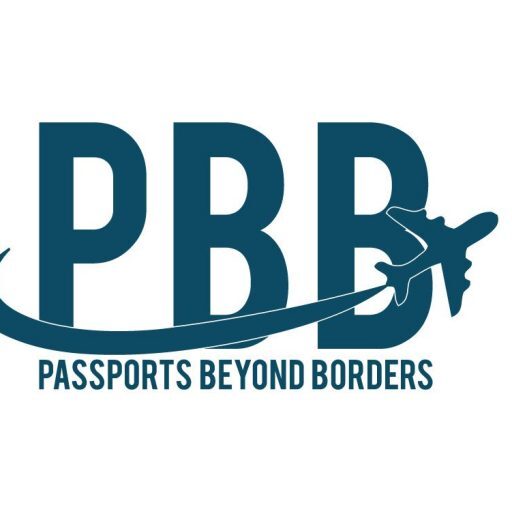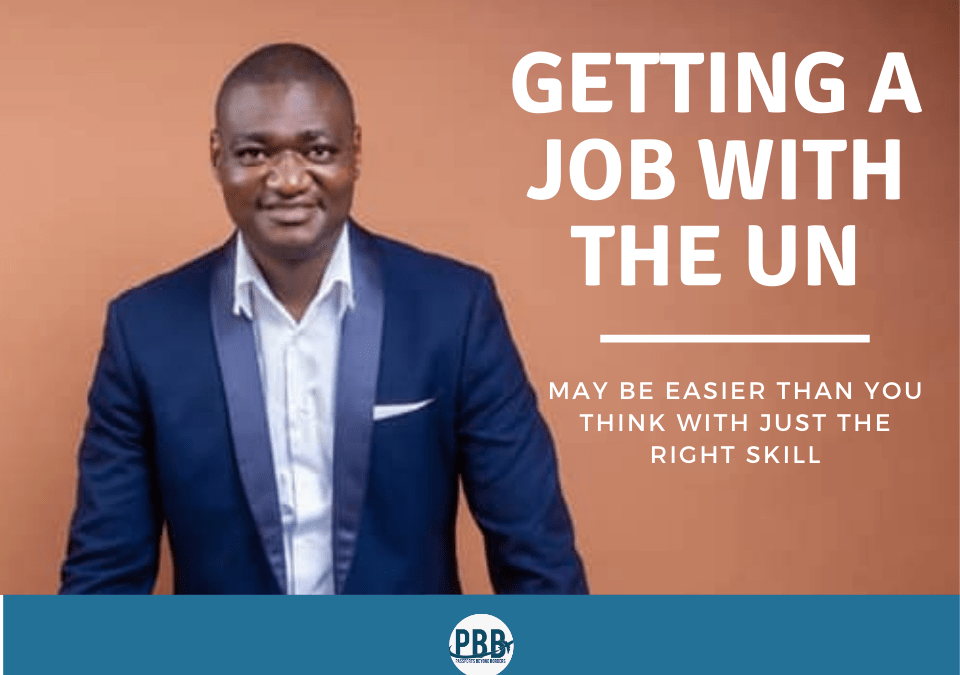UNICEF jobs are usually posted on UNICEF’s website www.unicef.org and also on www.reliefweb.int
“Prior to getting my role as UNICEF partnership specialist, I worked in Tanzania as grants coordinator for the international rescue committee (an American international NGO that specializes in an emergency) program. I worked there for two years. After completing a training in Dubai, I was hoping to get a promotion either in Tanzania or in another country before this opportunity came knocking.
A friend and colleague of mine(Amadou) with whom I worked together in DRC in Save the Children International (an international NGO that works to improve the lives of children) had been sending me UN opportunities to apply for as he had just joined the UN. I told him that I had applied a few years ago, but was unsuccessful, so I am not interested in applying because I thought the UN recruitment is not transparent. He insisted that I apply as there was no evidence to support my thoughts about the recruitment system. He sent me two opportunities, one in Tanzania, and one in Malawi. I was very hesitant to be honest because I was really enjoyed my job at the time and was expecting a promotion. I applied for both jobs on the deadline and decided not to give it a thought. I then told my friend that actually the HR for UNICEF Lebanon had contacted me when I just started work in Tanzania and I turned it down because I just started a new role. My friend then laughed and said Maybe God is trying to say something. I got an email invite for a recruitment test three months after my application. I did the test and a month after I was informed I had been successful, and they requested an interview. After a series of interviews, I was invited to come to the country to do a presentation on strategies I will implement if recruited. I spent three days in the country and did my presentations and two months later, I was offered the role and that’s how I ended up here. I moved to my new role in Malawi two months after the offer. The lesson here is, be persistent, do not give up or listen to rumours about organizations as most of them are fake news, apply and if you qualify you will get the job it’s that simple. There is no corruption in the recruitment process in the UN. It is as transparent and also one of the best places to work in.”
What are the top courses to study to have a job in the UN/UNICEF?
The UN in general and UNICEF has different departments and needs people of different skills in the different departments. Our programs include mostly health, child protection, gender, health and HIV, water and sanitation, education, community resilience /emergency Nutrition etc. you need technical knowledge in these sectors .so courses in gender and child protection, health, reproductive and sexual health, masters in public health, nursing, medicine etc,
Education /teaching degrees, water management, agriculture, climate change environmental management, governance, Nutrition management, project management etc. are courses that easily get you entry into UNICEF. Apart from programs we have the support teams like communications and PR teams, Monitoring and Evaluation teams, supply team, operations teams, finance team, fundraising teams, construction, security etc. . Now to join these teams the courses I guess seems obvious for fundraising marketing is an obvious course(am a marketing expert CIM qualified too ) and doing fundraising.
For the communication roles, degrees and masters in communications and PR or advertising and PR etc. are courses that will land you in if you have the relevant experience, for finance jobs accounting and finance degrees or professional certifications too like CIMA, ACCA, CFA etc., MBA finance and others are very relevant, for operations team and supply chain, degrees in supply chain management etc. are relevant, for construction Civil, structural and architectural engineering degrees are very relevant. for security degree, army, police academies or any other recognized security training schools. In general, apart from some exceptions, a relevant degree in a practical field will be good.
Now haven’t said that, a degree with no skills and experience is as worthless as the paper written on it. The UN recruits’ people with SKILL sets not people who have just accumulated degrees, so the question what you can do? is what is asked and not what degree you hold. Of course, the jobs adverts have minimum qualification requirements to fulfil but once that is done, the questions and test will be on what you can do. Some of the degrees if well taught would have given you some tools and skills to use, but relevant experiences would give you the experience to respond to interview questions or respond to the recruitment test. People should also remember that the UN has many staff categories UNV are volunteer young graduates that are placed in UN agencies to learn and build their skills. we have both International UNV and national UNV. We also have internships for students finalizing their programs who wish to learn and maybe write about a specific topic in a UN agency. These are selected based on merit. Interns are usually nationals of the country of origin. We also have consultants who are people recruited to do a specific task and when the task is completed, they leave. There’s also temporal staff who are UN staff but on a temporal mission, if their assignment is complete and there are no funds they are notified to leave. There’s also have Fixed-term staff; these are staff are on a fixed-term contract they are considered full-time UN staff and stay as long as there is funding. Then we have continuing staff, these are people who have done more than 12 to 15 years in the UN and are on a permanent contract and would retire in the UN as long as the UN exist. We also have local and internal contracts for staff and consultants as well. If you are a fresh graduate, you can start by being a volunteer and grow, just google www.UNV.org and you can register and become a volunteer and will be deployed when there is an opportunity
Can you describe the process of obtaining a visa and work permit?
Obtaining the visa was straightforward. The agency sent me a letter of appointment detailing my job in the new station and stating salary and benefits and all. I went to the embassy after booking my appointment and waited for one hour and our visas (me my dependents) were granted the same day. if you wish to come to Malawi it’s very easy, go to the nearest embassy and state why you are coming (through an invitation letter or state if you are coming for holiday) and the visa will be granted. It is called the warm heart of Africa because from the embassy you start feeling the warmth. Malawi counts on visitors to grow the economy; the lakesides and parks are places to visit when you come to Malawi.
What other career options are available for a qualification like yours?
For someone with a master’s in marketing and CIM qualified like me, the world is open as there are many choices. I worked in the private sector as a marketing professional (marketing manager In zenith Insurance), I worked in the INGO as fundraising as a communication expert and in Save the children in Congo, Oxfam in Rwanda, IRC In Tanzania, SOS children villages international covering 11 countries in west and central Africa and now UNICEF in Malawi. You need to know where your passion lies and go for it. With a marketing degree, your options are almost limitless. I think if you have a marketing degree and are unemployed then you probably did the wrong degree.
Read Also:
- 16 Things to consider before deciding to take an International Job
- Expat Interview – A guide to living in Malawi in 2021
- What motivates me at work? My return to work after 4 months paternity leave



